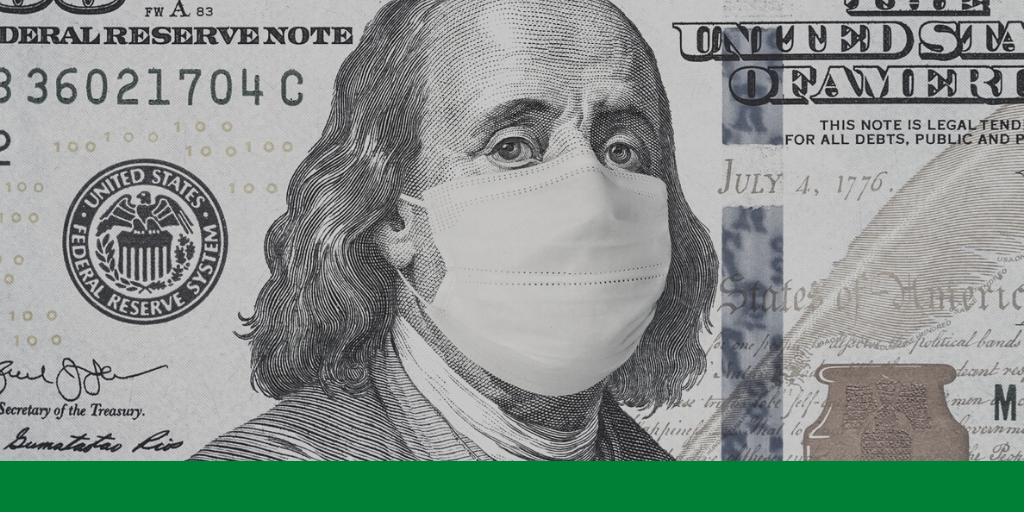By MoneyWise Staff
Wednesday, April 15, 2020

As stimulus checks begin to arrive, here’s what you need to know.
By now, you are probably aware of the Coronavirus Aid, Relief, and Economic Security Act or the CARES Act. You can review the 335 pages of the Act here. I know many people have extra time on their hands right now, but I doubt you desire to read all those pages. This post is meant to serve as a compilation of news regarding the CARES Act which will bring many folks a stimulus check. I’ll give you the details you want to know right now and where you can go to find out more.
According to the IRS here is the lowdown on stimulus checks:
Who:
Tax filers with adjusted gross income up to $75,000 for individuals and up to $150,000 for married couples filing joint returns will receive the full payment. For filers with income above those amounts, the payment amount is reduced by $5 for each $100 above the $75,000/$150,000 thresholds. However, for those without children, as single filers with income exceeding $99,000 or joint filers with income exceeding $198,000, these folks are not eligible.
What:
Eligible taxpayers who filed tax returns for either 2019 or 2018 will automatically receive an economic impact payment of up to $1,200 for individuals or $2,400 for married couples and up to $500 for each qualifying child (at this time, qualifying child coverage cuts off after age 16).
How:
For people who have already filed their 2019 tax returns, the IRS will use this information to calculate the payment amount. For those who have not yet filed their return for 2019, the IRS will use information from their 2018 tax filing to calculate the payment.
Where and when:
On March 30, 2020 the IRS said payments will begin in about 3 weeks, so mid-April is when taxpayers will begin to see the money. The economic impact payment will be deposited directly into the same banking account reflected on your 2018/2019 tax return or in your mailbox. If you have not previously set up electronic direct deposit and want to, the IRS has set up an online tool, here is the link.
Can you track the stimulus check?
If you are familiar with getting a tax refund, you may know that you can track your refund and see the process as it makes its way to you. However, this stimulus check is a whole new program, but the IRS just recently published another online too, so you CAN track it, check here for updates.
If you have more questions, follow this link to the IRS website.
How might you use your stimulus check?
I imagine anyone can think of a way to use a thousand dollars, but here’s some practical reminders of how to make the most of the stimulus check.
- Needs, use the money to make sure your essentials are covered. From food and toiletries to rent and utilities. To prioritize your needs, you may want to check if your utility company or the bank in your area is offering a relief option to help those who are struggling to make ends meet during this outbreak.
- Your taxes, because the filing and income tax payment deadline has been extended to July 15. If you haven’t prepared for paying your taxes you may use this check to pay what you owe and send the money right back to the government.
- Replenish your emergency fund, if you have dipped into your savings to cover costs for essentials during this outbreak, the stimulus check can be a welcomed refill.
- Reduce debt and loans, owing money can be a financial burden and can impact your overall financial stability. If you don’t need the money to provide essentials currently, paying down debt equals less interest paid later on and more money you’ll have in the future.
- Contribute to a long term investment fund. A great way to make money with little effort is to invest but the key is time. Long-term means that you don’t plan to access the funds for a year or years. Consider investing the stimulus check in a 529 account to use towards you or your kids’ higher education, or contribute to your retirement fund.
If none of the above apply to you and you’re thinking I just can’t wait to see my friends and visit my family, here is a thought. When things turn back to normal, and they will, think about putting funds into your neighborhood. Don't shop online, buy local, put money back into your local economy. This is about supporting one another. If you have a favorite coffee shop, pizza joint, or hair salon in your community, think about how bummed you’ll be if they don’t make it through this. Try to support them and help businesses stay afloat so you can exploit your happiness of enjoying their services long after this is all over.
These are trying times but we must be patient, this is not an instant gratification situation. We have to be in this together to make a change for all of us to overcome this and enjoy more of what life has to offer later on. Results will take time and the benefit for everyone is in the future.
Blog topics: Credit, Budgeting, Archive
The MoneyWise Matters blog has a wealth of information about managing money and avoiding fraud. You can look through the complete archive here.
